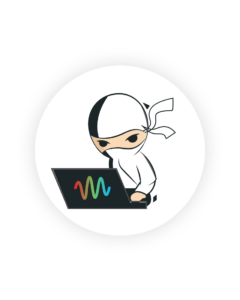
Mar 17, 2020
Predicting Support Ticket Escalations Using Machine Learning: The Problem
customer supportB2B supportcustomer escalationsmachine learningsupport ticket escalations
Prevention is better than cure. Trite as it might sound, this is especially true when it comes to support ticket escalations. After all, escalations are horrifyingly expensive. The opportunity cost of driving away a disgruntled customer, coupled with the unanticipated cost of redirecting expertise from far up the support chain is best avoided by having a proactive system in place. The time now is ripe to arm support organizations with intelligent and actionable ML-driven tools. With our escalation prediction model and workflow, we intend to do just that.
To set the stage for framing our approach, let me draw upon an analogy from my prior research on biological systems. Viewing problems through cross-disciplinary lenses ends up revealing overlapping themes in the landscape of data science; I have found the resulting intermingling of ideas to be quite useful in crafting creative solutions.
In this case, much like an infection triggers an engagement from the body’s immune response, a problem-struck customer filing a ticket is met with the services of a support engineer. Just as in the case of an infection, the variety, duration and severity of a problem in the ticket varies, requiring triaging to prioritize time and resources. Both scenarios involve progression through time, and just as the ideal outcome in biology is for the infected individual to recover purely with a strong immune system, similarly the goal for the support engineer is to drive problem resolution for the customer. Deviating from this path back to health during an infection requires medical intervention, say as antibiotics; similarly, the engineer’s inability to solve the customer’s problem results in escalations and costly external intervention. Finally, much like an infection is supposed to prime the immune system such that its response to subsequent attacks are expeditious, customers rightfully expect repeat problems to be met with faster resolution times.
To summarize, the complex interaction of multiple forces across time, the push for ideal resolutions of cases using existing resources, and the calling upon of past experience for swift solutions are goals to target in both biological systems and support organizations. Case volume, product diversity, customer diversity – the various forces that shape the journey of a case from its creation to resolution make it at once complex and fascinating.
In my next post, I will talk about SupportLogic’s approach to machine learning in general, and how we tackle the undeniably complex problem of forecasting escalations in the support space in an actionable way that lowers the cognitive load of support organizations.
Don’t miss out
Want the latest B2B Support, AI and ML blogs delivered straight to your inbox?



![22.05-NA-NEWS-5-things-we-learned-from-SX-Live[1]](https://www.supportlogic.com/wp-content/uploads/2022/05/22.05-NA-NEWS-5-things-we-learned-from-SX-Live1.png)

